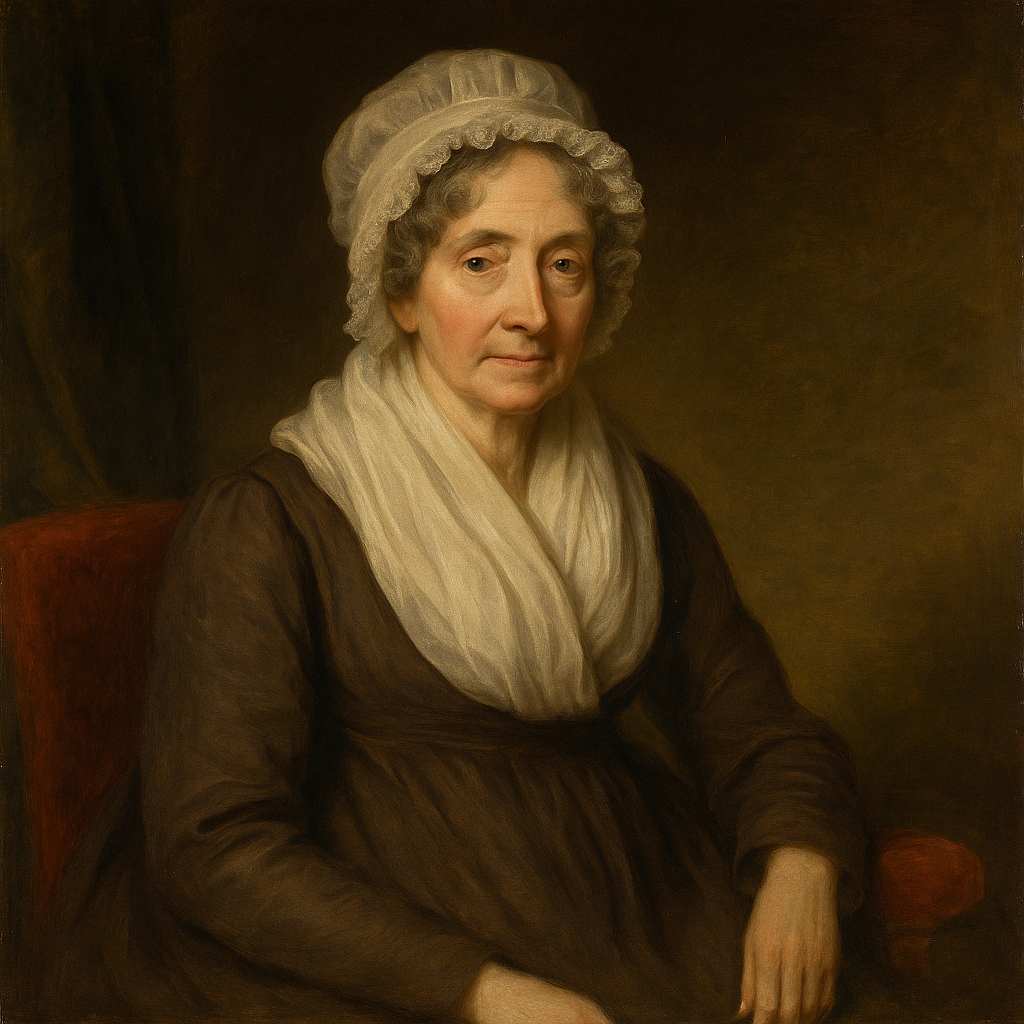1 Poems by Joanna Baillie
1762 - 1851
Joanna Baillie Biography
Joanna Baillie, a remarkable Scottish poet and dramatist of the late 18th and early 19th centuries, stands as a pivotal figure in the development of British Romantic literature. Born on September 11, 1762, in the manse of Bothwell, Lanarkshire, Baillie emerged from a family deeply rooted in the Presbyterian Church of Scotland. Her father, James Baillie, was the local minister, while her mother, Dorothea Hunter, came from a family of physicians. This blend of religious and scientific influences would later shape Baillie's unique literary perspective.
Baillie's early years were marked by a rural upbringing that fostered a deep connection to nature and Scottish folklore, elements that would later infuse her poetry with a distinctive voice. Despite the common practice of the time to prioritize male education, Joanna and her sister Agnes received a remarkably thorough education, partly due to their brother Matthew's insistence. This early exposure to literature and ideas laid the foundation for Baillie's future literary endeavors.
In 1784, following her father's death, Baillie moved to London with her mother and sister. This relocation proved pivotal in her artistic development, exposing her to the vibrant literary scene of the capital. It was in London that Baillie began to seriously pursue her writing, initially in secret. Her first publication, "Poems: Wherein it is Attempted to Describe Certain Views of Nature and of Rustic Manners" (1790), was released anonymously, reflecting the societal constraints faced by female authors of the era.
However, it was Baillie's dramatic works that would cement her reputation in literary circles. In 1798, she published the first volume of her seminal work, "A Series of Plays: In Which It Is Attempted to Delineate the Stronger Passions of the Mind, Each Passion Being the Subject of a Tragedy and a Comedy." This ambitious project, which Baillie would continue to expand over the next three decades, aimed to explore human psychology through drama, focusing on a single dominant passion in each play. This innovative approach to character development and dramatic structure was revolutionary for its time and garnered both praise and criticism from her contemporaries.
Baillie's exploration of human passions was not limited to her plays. Her poetry, while less voluminous, displayed a similar preoccupation with the intricacies of human emotion. Poems such as "A Mother to Her Waking Infant" and "The Kitten" showcase her ability to capture the nuances of everyday experiences and relationships, infusing them with profound emotional depth.
Throughout her career, Baillie navigated the complex landscape of gender expectations in the literary world. While she achieved significant recognition during her lifetime, including praise from literary giants such as Sir Walter Scott and Lord Byron, she also faced criticism for venturing into genres traditionally dominated by men, particularly tragedy. Despite these challenges, Baillie remained committed to her artistic vision, continually refining her craft and expanding her literary output.
Baillie's work was not confined to the page; she was also deeply engaged in the theatrical world of her time. Although many of her plays were initially deemed "closet dramas" (meant to be read rather than performed), several did see successful stage productions. Her tragedy "De Monfort" was performed at Drury Lane in 1800 with John Kemble and Sarah Siddons in leading roles, marking a significant achievement for a female playwright of the period.
Beyond her contributions to literature, Baillie was a respected figure in London's intellectual circles. Her home in Hampstead became a gathering place for writers, artists, and thinkers, including luminaries such as William Wordsworth and Anna Barbauld. These connections not only enriched Baillie's own work but also positioned her as an influential voice in the shaping of Romantic literature.
Baillie's literary career spanned over five decades, during which she continued to produce plays, poems, and critical writings. Her later works, such as "Dramas" (1836) and "Fugitive Verses" (1840), demonstrate her evolving style and enduring creativity. Even in her later years, Baillie remained engaged with contemporary literary trends, offering insights and critiques that bridged the gap between the Romantic and Victorian eras.
Throughout her life, Baillie maintained a strong connection to her Scottish heritage, often incorporating themes and settings from Scottish history and folklore into her work. This cultural grounding, combined with her innovative approach to character psychology and her exploration of universal human experiences, gives her work a timeless quality that continues to resonate with readers and scholars today.
Joanna Baillie passed away on February 23, 1851, leaving behind a rich literary legacy. Her contributions to drama, poetry, and literary theory have earned her a place among the most significant writers of her generation. While her work fell into relative obscurity in the late 19th and early 20th centuries, recent scholarship has led to a revival of interest in Baillie's oeuvre, recognizing her as a pioneering voice in the exploration of human psychology through literature and an important precursor to the psychological realism of later 19th-century drama.
Baillie's life and work offer a fascinating window into the literary and social currents of her time, challenging conventional narratives about women's roles in the development of Romantic literature. Her unwavering commitment to her artistic vision, her innovative approach to dramatic and poetic form, and her keen insights into the human condition ensure that Joanna Baillie remains a subject of enduring interest for scholars, students, and readers alike, cementing her place in the pantheon of British literary greats.
This text was generated by AI and is for reference only. Learn more
Username Information
No username is open
Unique usernames are free to use, but donations are always appreciated.
Quick Links
© 2024-2025 R.I.Chalmers (V2Melody).

All music on this site by R.I.Chalmers (V2Melody) is licensed under a Creative Commons Attribution-NonCommercial 4.0 International License.
Attribution Requirement:
When using this music, you must give appropriate credit by including the following statement (or equivalent) wherever the music is used or credited:
"Music by R.I.Chalmers (V2Melody) – https://v2melody.com"
Support My Work:
If you enjoy this music and would like to support future creations, donations are always welcome but never required.
Donate


